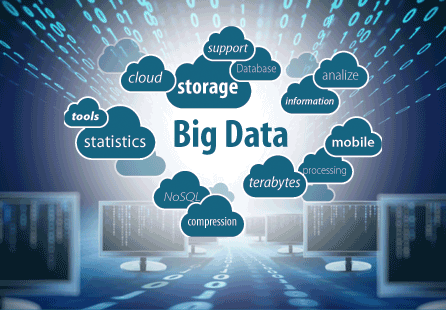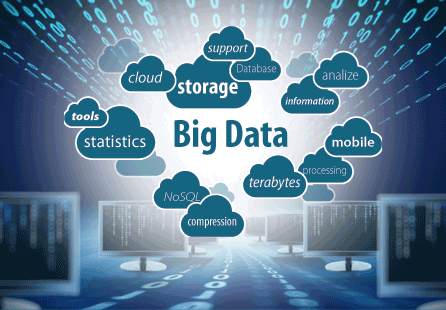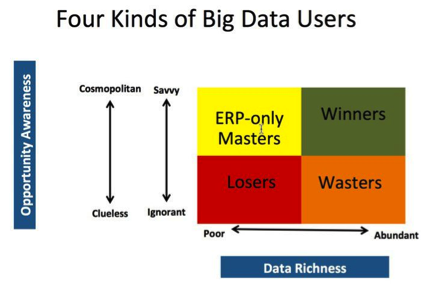The focus of this blog post is to begin to place analytics as the key capability and business improvement for the Life Sciences and Healthcare industry. I will look to give other blog posts on database types as a prelude to the pending wave around the Internet of Things (#IoT). We all know the term #BigData, and if you do a search within LinkedIn you find many articles on the topic. I want to focus on the buyers of big data solutions to solve problems specific to Life Sciences and Healthcare companies. I’ll provide the background and the types of solutions you may need to discuss with this technology.
Big players look to improve their product offerings
A few days ago I had read with interest an article entitled “Big incumbents target big updates in big data bonanza.” The focus of the piece was how Oracle, HP and IBM were releasing updates around their big data portfolios. They include SQL, plus Hadoop, and NoSQL, and according to Dan Vesset from IDC there is no one technology that addresses all the analytics use cases. Why does this matter to Healthcare and Life Sciences?
Having a ‘unified’ data platform will be part of the industry’s analytics strategy. With so much data you need a plan that supports future search and analysis ability within your companies. IDC predicts that the overall market in 2015 to reach $125B. With Healthcare and Life Sciences to have a significant part of this market. IDC tells us that we have until 2017 to have this in place, with the Internet of Things (IoT) having a real influence when it comes to healthcare and new product innovation.
Winners and Losers in the Big Data wars
I recommend you read this great article by Brian Sommer (@Brianssommer) “The Big Data Wars – will your company prevail? Part1” and there is a “Part2.”
I would contend that if you read this blog post you are either involved in analytics or providing advice for clients on this topic. So it is helpful to know where you, and your company or client sits if you agree with the previous paragraph. While the article covers generalities I would like to propose the same viewpoint for Healthcare and Life Sciences companies.
Where do you land in the Big Data wars?
“Wasters – companies that have access to big, external data but don’t do enough with it.” In attempting to comply with US healthcare regulations there are hospital systems that have implemented IT systems to capture data (meaningful use compliance). Have these systems provided valuable feedback to help ‘improve’ healthcare? Can data from within a hospital room be leveraged to improve healthcare for the patient? Depending on the healthcare system it is debatable, and yet it can lead to competitive healthcare improvements.
Conversely, Medical Device companies have to store patient related data as per regulations – are you missing an opportunity to leverage long-term historical facts to give advice for new devices? Pharmaceuticals could be connecting clinical trials data with data from wearables (I would suggest this will happen sooner than later) or doctors notes to offer greater insights into the outcome of new and existing medicines.
“Losers – These firms couldn’t be bothered by the emergence of big data.” Yes there are small group of companies that see data as a nuisance. Their happy with the way their data works today so why bother with looking at more data. To be sure not to find you in this box look at both the technology and organizational change, yet I will leave that for another blog post.
“ERP Masters – Leveraging transactional data beyond the four walls of your company.” I like Brian’s diagram because I come from several years of working with enterprise systems big data forces us to look beyond the four wall of the back office. Yes it is all about ‘integrating’ external data for more insight for the business.
- Life Sciences companies would extend ERP systems into the clinical trial process to tie manufacturing quality and product traceability through to the delivery of the products to the patients and hospital storage locations.
- Hospitals that look to become more profitable will look to extend patient records to include ‘remote/home’ data as a necessary next step in providing ‘value’ in the recovery process. Today’s hospital systems have yet to extend this far into healthcare.
- The Internet of Things (IoT) will have a significant big data impact through the Life Sciences and Healthcare value chain. ERP systems are not designed to support data collection nor analysis of data.
“Winners – These firms know more, understand more and want more.” I’ve not referenced the payers in this discussion, and that is because they take full advantage of big data to help devise healthcare plans and payment plans. Big data should be viewed and planned as a competitive advantage. Do you feel you company or clients are using big data as a spirited market advantage? Brian said it best, “They know that insights mean money, market share and margin.”
Let me know what you think? Agree or disagree…
Thanks,
Jim




